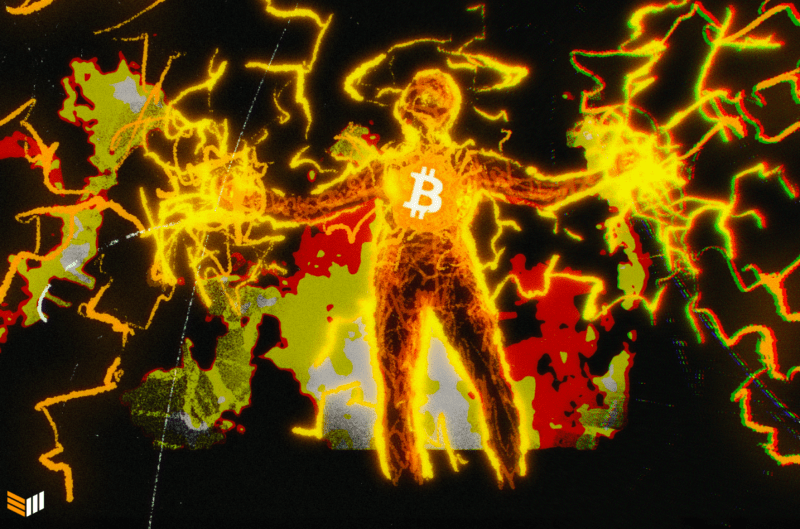
I am a zoomer, you may have heard of us — self entitled, spoiled and good at tech. I recently graduated from high school, attended university and entered the workforce. If you have done any of these things in your life then there is a good chance that you’re a human, and this article is relevant to you. Although this writing is tailored to younger demographics it still applies to everyone.
I’ll begin bluntly: you are operating your life at a loss — surprise! Now let me explain. Time is money and money is time, literally. Every day that you go to work you trade your time and energy for yet-to-be-redeemed credits of other peoples’ time and energy. This technological innovation is called money.
As a zoomer, I have many daily purchases and some life goals. I buy a coffee most mornings and one day I would like to own a house. I also have a savings account full of yet-to-be-redeemed credits. If I choose to not redeem (spend) these credits immediately, then they continuously lose value. With every second that goes by, the morning coffees and that future house get more expensive. As a result I’m able to ask less and less of other people’s time. Why is that?
These items get more expensive because governments use expansive monetary policies like low interest rates and money printing. I have no control over these expansionary monetary policies nor do I benefit from them. A cup of coffee, if I were alive in 1970 might have only cost me 25 cents; today it costs me upwards of $5! If we continue along the government’s targeted rate of inflation, that cup of coffee may end up costing me more than $10 before I even retire.
It’s an uphill battle!
I have to run faster and faster just to stand still and so do you. The current financial system is designed around “growth” at all costs. The economy is dependent upon debt-fueled consumption for consumption’s sake.
Consider the impacts of this on the environment. If the incentive is to quickly spend the money you earn today before it loses value, then resources are being dug up and mined before they would otherwise need to be. The “live for today” mentality comes at the expense of a better tomorrow. By today’s measurements of growth, or Gross Domestic Product (GDP), a cyclist ruins the economy because they do not buy cars, gasoline, insurance, or have car crashes. However, a fast-food outlet is great for the economy because it creates cardiologists and sick people who demand medicine and treatment.
Here’s the real kicker: the debt that has been generated is what we are about to inherit. We are on track to pay for all of the existing debt from past generations. Tax rates will be hiked, cheaper credit will be enforced, and dollars will be helicoptered into our financial system. Whether through taxes or inflation we will trade our time to pay for someone else’s mistakes. Unless, of course, we hold bitcoin.
A boomer told me once that he had solved the world’s debt crisis and explained that future generations would just pay for today’s consumption. I politely explained back that “I store my wealth in an unconfiscatable asset so that I can’t be forced to pay for your government’s egregious misallocation of resources.” I ask this question to you, the reader — do you?
Money is possibly the most important human construct after mathematics and language. For millennia, societies have employed either a token-based monetary system, like gold or seashells, or a ledger based system, like the fiat currencies of today. Throughout human history, the technology used for money has slowly and constantly evolved.
A fixed money supply means that human beings more intently vet their spending decisions, act less wastefully, and focus more on what’s important for the future. If your time and energy are stored in a non-confiscatable & non-inflatable asset, then you cannot be forced to pay for a previous generation’s decisions. How does that sound?
Bitcoin is a digital monetary network, native only to the internet. It has no physical form and crucially it has a verifiably limited supply. Bitcoin is the first iteration in human history of a proprietary token-based system backed by a distributed ledger. Because of the fixed supply, your claim on society’s time can not be diluted.
Bitcoin is one of the most risk-asymmetric trades anyone, especially a zoomer, can make. It has limited downside, yet it has an infinite upside. There is a non-zero percent chance that bitcoin will go to $1 million in our lifetime, but there is a 0% chance that your and my dollar savings will maintain value over the next 10 years.
With bitcoin in my pocket I run with the wind at my back and I swim with the current.
Special thanks to @BTCSchellingPt , @nikcantmine , @aurumbtc and Del for helping to edit this piece.
This is a guest post by Lawson Enright. Opinions expressed are entirely their own and do not necessarily reflect those of BTC Inc. or Bitcoin Magazine.